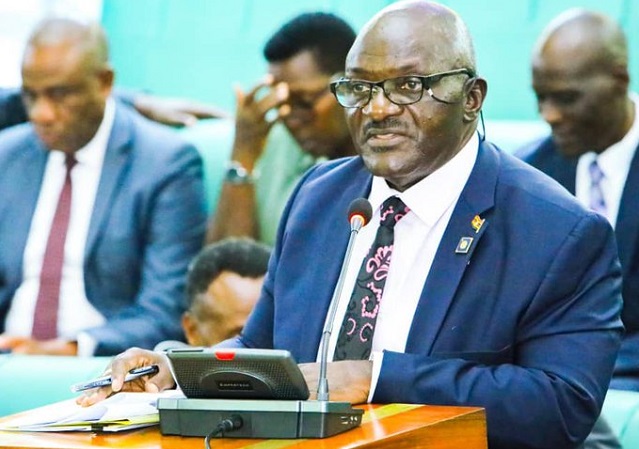
In a recent session of Parliament, a proposed bill to mainstream the Uganda National Roads Authority (UNRA) back into the Ministry of Works and Transport was met with rejection. The bill, titled the Uganda National Roads Authority (Repeal) Bill 2024, was introduced by the sector minister, Gen. Katumba Wamala.
The rejection came after a vote by the legislators against the bill, which sought to revert the functions of UNRA to the mother ministry. The session, chaired by Speaker Anita Among, saw heated debates regarding the future of UNRA.
Gen. Katumba Wamala, in defense of the bill, argued that merging UNRA into the ministry would lead to significant cost savings. He stated that the move could save up to Shs39 billion in wages per month, which are currently paid to over 1500 UNRA staff.
"UNRA is, in effect, bigger than the ministry, and this is an agency. The ministry staffing is 529 with a budget of Shs17 billion, while UNRA’s budget is Shs71 billion," said Katumba Wamala.
The minister further argued that the parallel operations of UNRA and the Uganda Road Fund have caused division within the ministry, affecting direct command and control as well as the effective delivery of services.
However, the Chairperson of the Committee on Physical Infrastructure, Dan Kimosho, presented a report rejecting the mainstreaming of UNRA back into the ministry. Kimosho defended UNRA’s autonomy, highlighting its significant achievements over the last 15 years.
"The role of UNRA in the management, development, and maintenance of the national roads infrastructure is critical to the performance of the works and transport sector and the country’s development aspiration," Kimosho stated.
The committee also argued that mainstreaming UNRA into the ministry would likely recreate the challenges that led to the formation of UNRA in the first place.
"The committee is concerned that the government is likely to suffer a setback of delayed project implementation and completion of important and strategic road infrastructure because of the shocks that come with the rationalization process," Kimosho added.
Members of Parliament supported the committee's position, emphasizing the importance of retaining the autonomy of UNRA.
"Let UNRA stay because it is handling critical work. If it wasn’t for UNRA, we who come from Western Uganda would be cut off," said Rubabo County MP, Naboth Namanya.
Under section 6 of the UNRA Act (2006), UNRA is responsible for the management, development, and maintenance of national roads, advising the government on policy matters concerning roads, and assisting in the coordination and implementation of road-related policies.

















